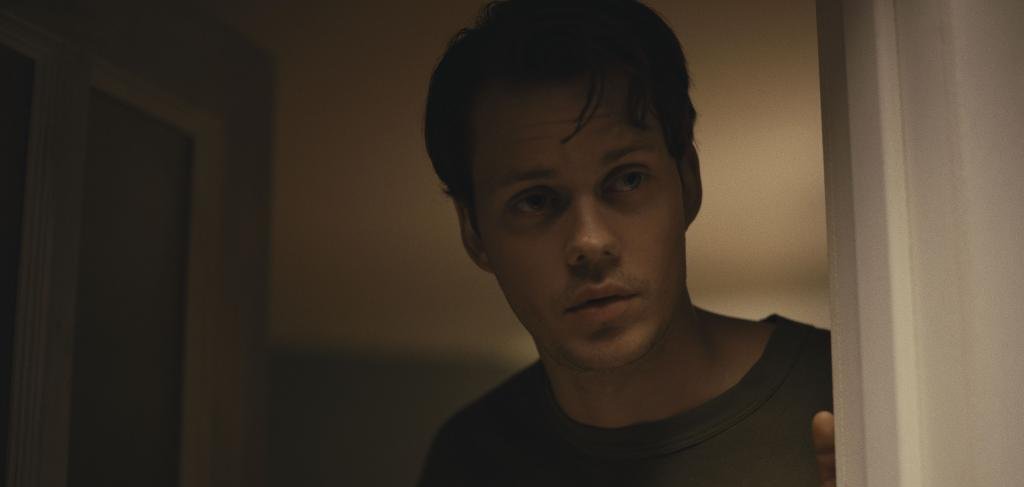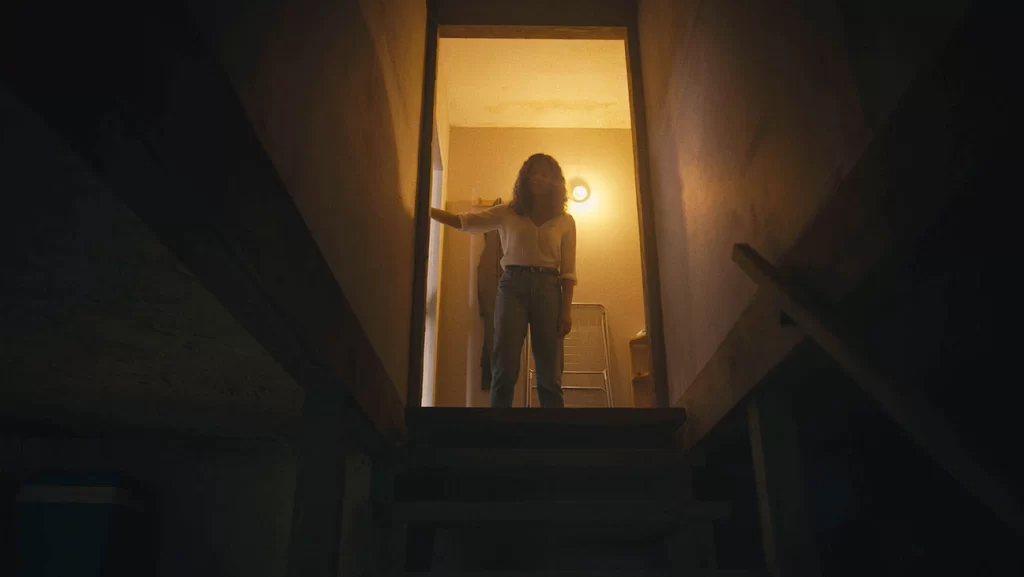
He’s a really nice guy. That’s what you need to understand, and what serves as the human foundation for the hellish nightmare that follows. When Tess (Georgina Campbell), an attractive young documentarian interviewing for a job in Detroit, arrives at her Airbnb in the dead of night only to find it already occupied by a well-built man named Keith, you might think that she should dive back into her SUV and burn rubber. She contemplates that very course of action herself; she isn’t stupid, and the last thing she wants to do is star in a horror movie. But Keith is—and I can’t stress this enough—a really nice guy, and so Tess swallows hard and crosses the threshold from the porch into the house, and the terrible events that follow are set in relentless motion.
Written and directed by Zach Cregger, Barbarian is one of those twisty pictures where virtually any plot detail arguably qualifies as a spoiler. But the title alone, which appears on screen in a creepy elongated typeface as cockroaches skitter across its letters, at the least confirms that it isn’t a romantic comedy. That might be news to Tess and Keith, whose flung-together-by circumstance pairing—turns out the incompetent property-management company double-booked the rental—could qualify, in a different cinematic universe, as a meet-cute. In addition to possessing broad shoulders and a square jaw, Keith is uncommonly courteous and perceptive. He offers Tess the lone bedroom without hesitation, throwing in a self-deprecating crack about his square upbringing. When she doesn’t drink the tea he makes for her, he recognizes her suspicions and volunteers to open a bottle of wine in front of her, negating the possibility that he’s doing anything indecent. He’s even familiar with the little-seen jazz documentary that Tess finds formative. He’s Prince fucking Charming.

And yet… is he maybe a little too charming? Tess can’t quite shake the feeling that there’s something off about her improbably wonderful new roommate, a sensation that lingers for reasons beyond him being played by Bill Skarsgård, who’s previously leveraged his chilling stare in Stephen King-inspired works like the It films and Castle Rock. Why does her bedroom door edge open in the middle of the night? What is Keith murmuring in his sleep? Is there really a medical convention in town preventing her from making a hotel reservation, or is that just something he said to discourage her from searching for different accommodations?
Barbarian is suitably suspenseful throughout its fleet 102 minutes, but it’s downright riveting during its opening act, when Tess questions Keith’s sincerity while Cregger oh-so-slowly chips away at the movie’s wall of secrets. His career as a director is, to put it mildly, nascent—his IMDb page is a mishmash of failed features and little-seen sketches—but he’s plainly a patient filmmaker, and he knows how to exploit a trope. His work here is replete with archetypal images of characters hovering at ominous points of entry—the top of a flight of basement stairs, the beginning of a seemingly infinite corridor—shining pitiful lights into swallowing darkness. Cregger enjoys toying with horror conventions—at one point, Tess considers approaching a potential threat, only to tell herself, “Nope”—even as he labors to juice those hoary standbys with the kick of genuine surprise.

To that end, his screenplay is both bold and rather ingenious. The movie is divided into discrete sections, and the transitions between them are audacious; I can scarcely recall being more floored by an edit than when Cregger suddenly cuts from the dingy doings of Midwestern dilapidation to the sweeping beauty of the California coastline. It’s there that he locates A.J. (a nicely cast Justin Long), a vapid actor whose financial and reputational woes at first seem wholly disconnected from Tess’ curiosity and anxiety. Their worlds inexorably collide, and the concurrence allows Cregger to mine additional tension in a way that’s especially devious. He essentially runs through the same sequence of events—a series of discoveries, bafflements, and terrors—a second time, only now he’s reoriented our perspective, nudging us from wide-eyed confusion to helpless anticipation. (In this regard, A.J.’s struggles with a tape measure are perversely hilarious.) For an audience, the only thing scarier than having no idea what’ll happen next is knowing it exactly.
Which isn’t to suggest that Barbarian is short on jolts. There are shocks and screams, reveals and reversals, along with the obligatory haywire climax which is inevitably less satisfying than the suffocating buildup. Cregger supplies the occasional killer image—a shot of a character leaping through the air, arms outstretched in demented concern, is unforgettable, while a sequence involving breastfeeding will send new parents racing to the store to buy formula—but on the whole his set pieces lack the supple formalism of a horror contemporary like Ti West.

That said, there’s a bit more at work here than first meets the (bloody) eye. Perhaps the most surprising thing about Barbarian is that, despite operating as a meaty hunk of genre fare, it stealthily acquires a shiver of thematic relevance. It might be a stretch to call the movie feminist, but it doesn’t seem accidental that its chief villains—an entitled celebrity and a grouchy baby boomer—both treat women as conquests rather than people. (A flashback to a time when Ronald Reagan’s name is heard on the radio—and when the Detroit suburb’s future-crumbling homes are all painted cheerful colors as though they’ve been yanked from a Tim Burton fantasy—represents yet another of the film’s bravura temporal shifts.) The script also casts a dubious eye toward the police, viewing uniformed officers not so much as perpetrators of brutality than as standard-bearers of indifference.
Social commentary aside, Barbarian mostly functions as a smoothly calibrated fright machine, even as it also offers some kernels of wisdom to travelers on the Airbnb circuit. Specifically, it provides three nickels’ worth of free advice. Lock your doors. Charge your phone. And above all: Stay out of the basement.
Grade: B
Jeremy Beck is the editor-in-chief of MovieManifesto. He watches more movies and television than he probably should.
